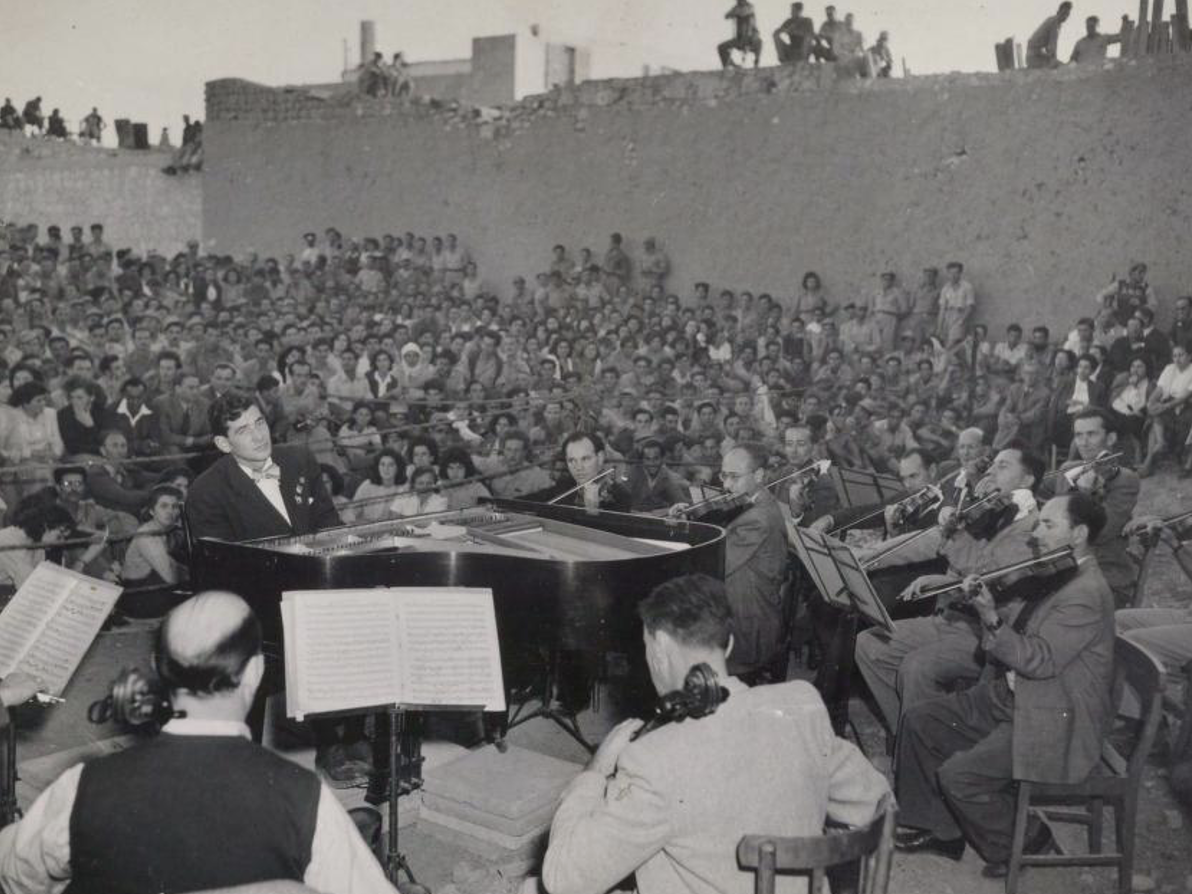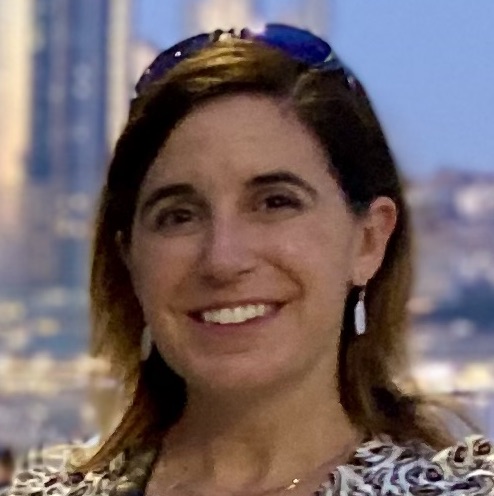The healing gift of music: Leonard Bernstein and hope at the end of the Six-Day War
Part 3 in a series that looks back at that pivotal war in 1967

In Part 1 of this series, we introduced the beginning of the Six-Day War of 1967 and Israel's miraculous military success and political advancements as a result of its victory.
In Part 2, we reviewed the unintentional liberation of the nation’s capital, Jerusalem, which had been seized by Jordan in 1948.
In this part of the series, we will look at what came next for Israel at the end of the Six-Day War, the support that the Jewish state received and the hope that was instilled in the hearts of many, including the famed U.S. composer and conductor, Leonard Bernstein.
By the first week of July 1967, news pertaining to Six-Day War between Israel and neighboring Arab nations had been edged out of the news headlines in America. The United Nations helped to negotiate a hasty ceasefire on June 10, just six days after the initial Israeli air offense.
During the brief conflict, the Israeli military had successfully secured possession of the Sinai Peninsula and the Gaza Strip, from Egypt, the West Bank and East Jerusalem, from Jordan, and the Golan Heights from Syria.
However, neither the United States nor the United Nations asked Israel to relinquish territories that had been secured through battlefield victories. Instead, delegates to the UN, including the U.S., pushed for Israel to acquire peace settlements before agreeing to any withdrawal from the obtained territories. The Arab states widely spurned the idea of agreeing to the idea of acknowledging the “right of all states in the area to live in peace and security.”
Among the important negotiations that took place was the debate between Israel and Jordan as to the status of Mount Scopus, the current site of Hebrew University in Jerusalem. The site had been a Jewish enclave in Jordan-held Old Jerusalem for nearly two decades, until its liberation in the Six-Day War. On July 7, an agreement was reached, designating all of Jerusalem to remain as a part of the Jewish state.
Earlier that same week, Leonard Bernstein visited Israel to fulfill his promise to conduct a celebratory concert in honor of the “peaceful reunification” of Jerusalem. The conductor had recently been on tour leading concerts in Italy and Austria. Ironically, the symphony he was conducting during that tour was Gustav Mahler’s Resurrection. Following the Vienna concert, several of the performers requested that their fees be donated to Israel’s Red Cross organization.
Bernstein’s passion for music, embodied in his exuberant conducting style and the beloved West Side Story, was rivaled only by his pursuit of peace and justice. This sentiment was manifested in his commitment to Israel, which was first demonstrated in 1947, when he conducted a concert in Tel Aviv. Less than a year later the Jewish American conductor returned to the fledgling state during the War of Independence, this time to lead a concert in the Negev desert for the soldiers of the Israel Defense Forces.

That concert was credited with furthering Bernstein’s dedication to Israel as he recognized and was inspired by the strength and courage of the Israeli people and their determination to never let the Jewish nation be taken away from them. This furthered his zeal for giving concerts for the IDF soldiers.
“Never could you imagine so intelligent and cultured and music-loving an army.” Less than 20 years later, Bernstein was compelled to travel to Israel once again to spend time with IDF soldiers, including those recovering from war wounds in army hospitals, where he performed songs in Yiddish.
Bernstein saw music as a means of celebrating and memorializing the significance of a moment. This was effectively illustrated by his choice of venue for the July 9 concert at Mount Scopus. The Roman amphitheater, part of the old campus of Hebrew University, had recently been liberated, along with the Holy City. The most stirring moment of the evening was the rendition of “HaTikvah,” Israel’s national anthem. Bernstein later recalled the event as the most crucial and historical concert of his career.
The magnitude of the Mount Scopus concert was not lost on concertgoers or those who viewed the televised broadcast. Then-Jerusalem Mayor Teddy Kollek, recalled the event as “the cultural opening of the united city of Jerusalem.” Soon afterward, the campus of Hebrew University, originally situated on Mount Scopus, was rebuilt.
Bernstein, who died in 1990, had great hope for peaceful reconciliation and healing between Israel and her Arab neighbors. This hope was exemplified by the fact that all of the concert proceeds were given to the Jerusalem Foundation for the Development of Jewish-Arab Youth Activities.

Though an educator for more than twenty years, following her return to school to earn a master’s degree in military history at Norwich University, Tara Simpson began working as a freelance writer for both the Stars and Stripes newspaper and ABC-CLIO reference publications. Inspired by her grandparents’ service in World War II and beyond, Tara has specialized in research and writing on early twentieth century military history for over a decade. She is now as a Doctoral student at Liberty University with her dissertation research focusing on Israel’s early and modern military history.














